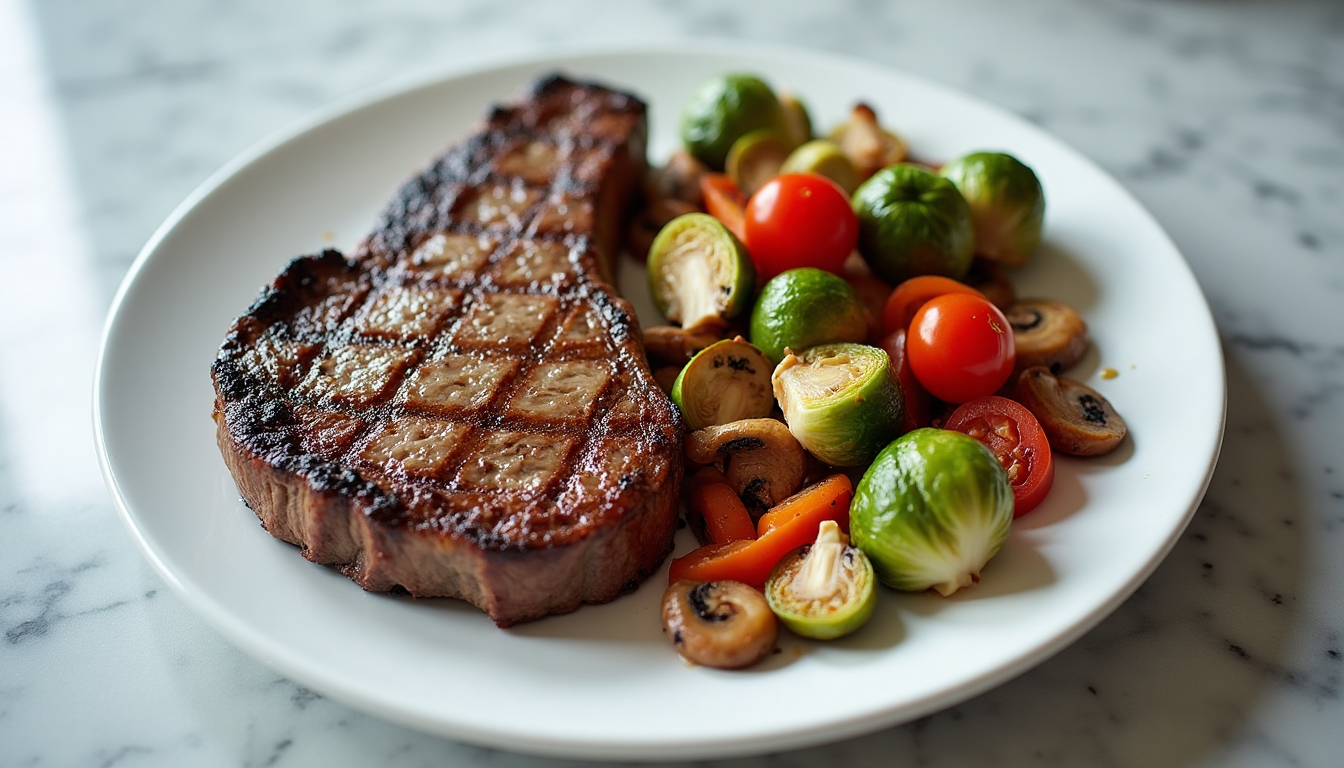Why the Carnivore Diet Is Just Bad Elimination Protocol Design

I've been watching the carnivore diet community for about three years now, and honestly? It reminds me of those startup pitch decks where the founder claims their app will "revolutionize human connection" when it's basically just another messaging platform.
Don't get me wrong—some people genuinely feel amazing on this diet. But the reasons why might surprise you (and probably disappoint the hardcore carnivore evangelists).
The Marketing vs. The Reality
Let me break this down like I would a product spec. The carnivore diet's value proposition rests on two main claims:
- "Evolutionary consistency" - We're meant to eat like our ancestors
- "Plant toxins are harmful" - Vegetables are trying to kill us
But here's where things get interesting. When you actually dig into the data (and I mean really dig, not just cherry-pick studies), both of these arguments fall apart pretty quickly.
Most hunter-gatherer societies? They ate whatever they could find. Plants made up the majority of their calories in most cases. The Inuit example that gets thrown around constantly? Recent research suggests they might not have been as healthy as previously thought.
As for plant toxins... look, lectins exist. But so does proper food preparation. Saying "don't eat beans because of lectins" is like saying "don't use electricity because you might get shocked." The solution isn't avoidance—it's competence.
What's Actually Happening Here
Here's my theory: The carnivore diet works for some people, but not for the reasons anyone wants to admit.
It's essentially the world's most extreme elimination diet. When you remove 90% of the foods in the modern food supply, you're going to accidentally solve a lot of problems. Got digestive issues? Well, you just eliminated gluten, FODMAPs, dairy (in strict versions), and about 47 other potential culprits all at once.
Feeling more energetic? You also just cut out all processed foods, refined sugars, and most of the garbage that makes up the Standard American Diet.
But here's the thing that bothers me: This is terrible elimination protocol design.
In my engineering days, if someone proposed a solution that required changing 50 variables at once to isolate a problem, they'd get laughed out of the room. How do you know which change actually fixed the issue?
The Hidden Costs Nobody Talks About
Beyond the obvious nutritional concerns (and yes, missing out on fiber and phytonutrients is a real problem), there are some practical issues that the carnivore influencers conveniently ignore:
Social isolation. Try explaining to your grandmother why you can't eat her famous lasagna because "plants are toxic." Good luck with that family dinner.
Financial cost. Quality meat is expensive. Organ meats help, but let's be honest—how many people are actually eating liver three times a week?
Psychological rigidity. I've seen people develop almost obsessive relationships with this diet. Any deviation becomes a moral failing rather than just... eating a salad.
But the biggest issue? It's a dead-end protocol.
A Better Approach (That Nobody's Selling)
What if we designed this like an actual elimination diet instead of a lifestyle religion?
Start strict for 2-4 weeks—sure, go full carnivore if you want. But then systematically reintroduce foods one at a time. Track your responses. Build a personalized diet based on actual data about YOUR body, not some theoretical evolutionary argument.
You might discover that you feel great with meat, fish, eggs, some dairy, sweet potatoes, and white rice but terrible with gluten and legumes. Congratulations—you just created a sustainable eating pattern that actually works for your life.
This approach gives you the benefits of elimination without the cult-like dogma or social isolation.
The Questions You Should Be Asking
Before you jump on any dietary bandwagon, ask yourself:
- Am I solving a specific problem, or just following a trend?
- Can I maintain this for 5 years without hating my life?
- Does this fit with my values, budget, and social relationships?
- What happens when I inevitably want to eat birthday cake?
The Bottom Line
The carnivore diet isn't evil. Some people genuinely do better with very low plant intake, and that's fine. But the dogmatic approach and pseudoscientific reasoning around it? That's the problem.
Your body doesn't care about evolutionary arguments or dietary philosophy. It cares about getting the nutrients it needs while avoiding foods that make you feel terrible.
So maybe instead of asking "What would a caveman eat?" try asking "What makes ME feel and perform my best?" Then design your diet around that answer.
Because at the end of the day, the best diet is the one you can actually stick to without losing your mind or your social life.
What's your experience with elimination diets? Have you found foods that clearly don't work for your body? I'd love to hear about your experiments in the comments—especially the ones that didn't go according to plan.




